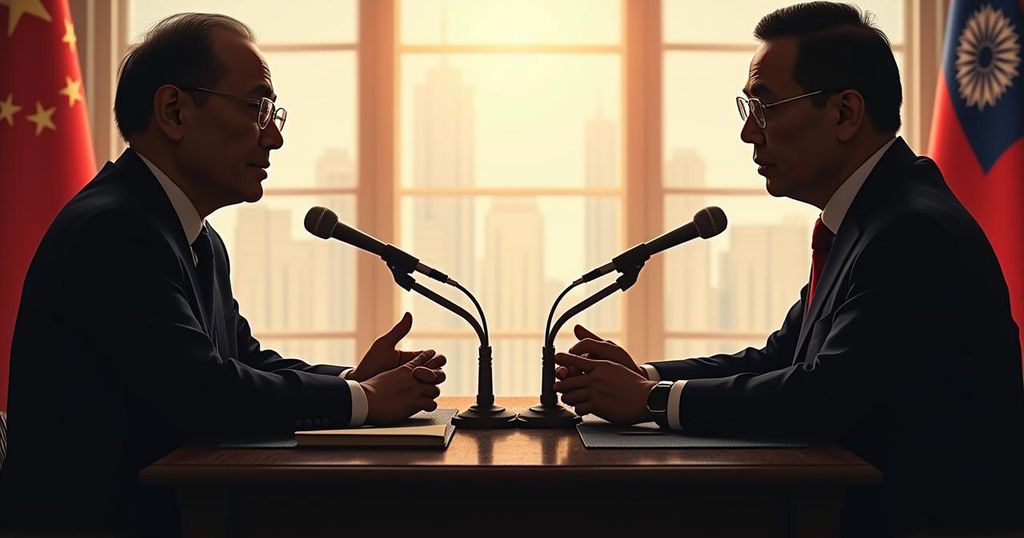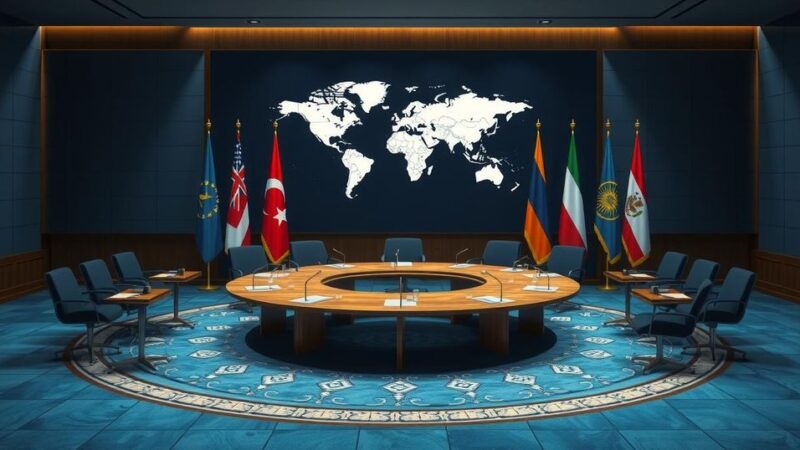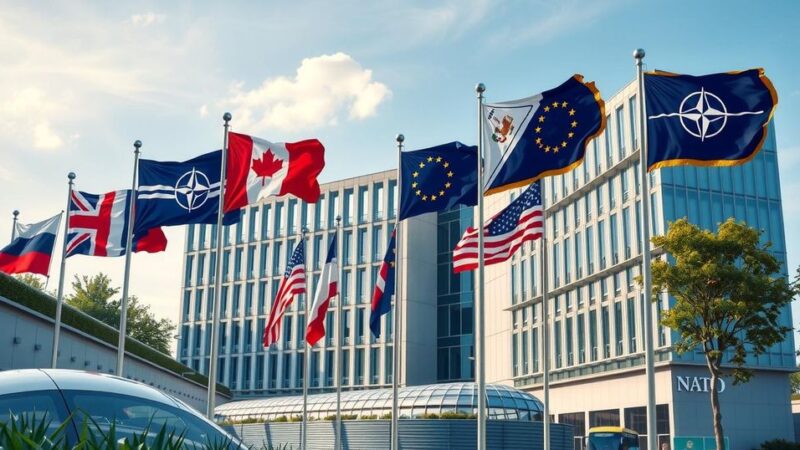Taiwan’s Foreign Minister Lin Chia-Lung highlighted India’s significance in countering China’s authoritarianism and expansionism in the Indo-Pacific. He emphasized the need for partnerships between like-minded countries and the importance of semiconductor collaboration between Taiwan and India. Taiwan’s officials advocate for enhanced diplomatic relations and economic cooperation to address common geopolitical challenges.
Taiwan’s Foreign Minister Lin Chia-Lung emphasized India’s crucial role in efforts by like-minded nations within the Indo-Pacific to counter China’s rising authoritarianism and its challenge to the global rules-based order. In a statement made during a press conference just prior to Taiwan’s National Day, Lin asserted that countries like India are pivotal in collaborative initiatives such as the Quadrilateral Security Dialogue (Quad) and the AUKUS alliance aimed at establishing a robust defense framework against Chinese expansionism in regions such as the Taiwan Strait, East China Sea, and South China Sea. Lin pointed out that Taiwan is striving to cultivate a robust cooperation framework that complements the economies of both Taiwan and India. He cited the collaboration of Taiwanese semiconductor companies with nations such as India and the U.S. as critical components of Taiwan’s new foreign policy, which focuses on establishing three vital supply chains—a security alliance chain, a resilient non-China supply chain, and a global democratic chain. He stated, “I think the Indo-Pacific framework or the Quad just [bring] together several countries because we are now faced with similar geopolitical challenges. All these related countries are put under the same geopolitical framework and the reason [for this] is China’s rising power and its expansionism.” Additionally, Lin underscored the significance of creating an environment conducive to Taiwanese businesses relocating from China to India, potentially facilitated by free trade agreements and initiatives that cater to small and medium enterprises. Furthermore, he highlighted the strategic partnerships in the semiconductor industry, specifically citing the joint ventures between Taiwan’s Powerchip Semiconductor Manufacturing Corporation (PSMC) and Tata Group as encouraging signs of cooperation. Taiwan’s Deputy Foreign Minister Francois Chihchung Wu added that the United States and India hold paramount capabilities in balancing Chinese influence in the region. He remarked on the evolving relations between Taiwan and India, emphasizing the necessity of innovation in diplomatic approaches to fortify political and trade ties due to the absence of formal diplomatic relations. In conclusion, both Taiwanese officials draw attention to the growing threat posed by China’s territorial ambitions and advocate for an urgent response from the international community, particularly from democratic nations. The development of stronger ties between Taiwan and India presents a formidable opportunity for mutual defense and economic collaboration.
The Indo-Pacific region has become a focal point for global geopolitics, particularly in light of China’s assertive foreign policy and territorial ambitions. Countries like Taiwan, India, Japan, and others part of alliances such as the Quad and AUKUS are increasingly collaborating to counteract these challenges. Taiwan is seeking to leverage its technological prowess, especially in semiconductors, to strengthen its economical and defensive ties with India and other nations. The shifting balance of power in this region prompts like-minded countries to build cohesive strategies to uphold the rules-based international order.
In summary, Taiwan’s Foreign Minister Lin Chia-Lung has reiterated the importance of India in a collective effort to counteract China’s authoritarian challenges to global order. With an emphasis on the integral role of trade and defense cooperation between Taiwan and India, as well as the need for a framework to attract Taiwanese investments, it is clear that both nations stand to benefit significantly from a strengthened partnership. As geopolitical tensions in the Indo-Pacific escalate, such relationships will be crucial for maintaining regional security and economic stability.
Original Source: www.hindustantimes.com






